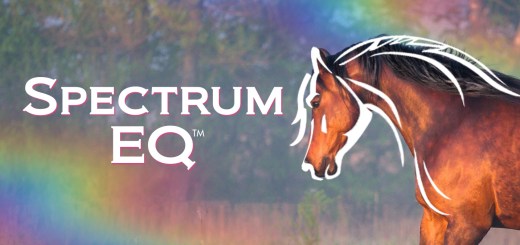
Down and Dirty: Healthy Soil for Healthy Us
Dirt. Horses and dogs love to roll in it, plants need to grow in it, and children like to make mud pies out of it. We get dirt under our fingernails, on our clothes, and all over our hands. We do not subscribe to the wonderful attributes to dirt; in fact, often times we disparage it.
The more I learn about dirt, the more fascinating I find dirt to be. In fact, did you know that dirt is one of the fundamental keys to health, performance, and well-being? It is at the crux of the GI tract, as well as the immune, bone, and muscle systems.
Because of the rather derogatory associations we make with dirt, let’s call instead call it what it really is: soil. Created by elements like carbon and nitrogen, climate adjustments, weather, decayed plants and animals, volcanoes, and retreating oceans over millions of years, all combined makes up soil. And within this mix of humus, clay, sand and minerals are species older than dinosaurs: microbes, bacteria, and fungi.
If we look at the health issues in humans, dogs, and horses, we can point to many factors including environmental, pesticides, herbicides, GMOs, monoculture farming practices, etc. And what do all these various issues have in common? They all wage war on soils.
Nutrition starts in the ground. Soil becomes the cradle of minerals and the microscopic nutrients that the plant uses to form phytonutrients. It is these phytonutrients that are essential in building the plant’s immune system. Phytonutrients are also the building blocks of flavor. This does not mean sweetness. It means subtle, complex flavors create many tones, simply than monotone. Think wine, chocolate, coffee and things like that where you can taste individual nuances.
The root systems of plants create mini highways in the soil allowing the soil organisms to move around. Unhealthy soils that are compacted, or too dry do not have the space for air to circulate, for the roots to spread, or for the microorganisms to move. Much of the nutrient cycling and disease suppression needed by plants occurs in this area known as the rhizosphere.
Symbiotic funguses in healthy soil bring minerals to the plant: calcium, phosphorus, magnesium, manganese, copper, zinc, selenium, iron, boron, etc. These minerals are essential to health for humans, horses, and dogs. So why are commercial feeds fortified with these and other minerals? It’s because the grains and plant byproducts used in commercial feeds are grown in unhealthy soil. Therefor the mineral uptake is very low to non-existent. Food is only as healthy and nutritious as the soil it was grown in.
Why are hay analyses all over the country showing low levels of key minerals like zinc, copper and almost no traces of boron? Why are magnesium levels often so low? When chemical fertilizers are applied, they are applied in a soluble form which feeds the plant, not the soil. Yet, the soil and its organisms are KEY to nutrient uptake. Adding synthetic nitrogen is like dropping a bomb on the soil microbe community.
There are many reasons why horses must have a multi-mineral supplement. In many places, our pasture soil is compacted, or have been sprayed in the past with chemical fertilizers or herbicides thus reducing plant uptake of minerals. Many farms have stopped spreading manure, and mistakenly have starved the soil of food for the microbes. Horse farms can be fantastic places for composting, but often no composting is done either for worry of flies or other reasons. Pasture rotation often can’t be accomplished because there are more horses than there are pastures to rotate them on.
Processed feeds and complete feeds have the added minerals, often in non-organic forms (carbonates rather than chelates), but few horse owners or barns feed the amount the feed company recommends, thus increasing the potential mineral deficit in the horses’ diets.
Hay is frequently grown with chemical fertilizers, which as we know, play havoc with the soil organisms, often killing them off, or driving them away. Without the soil organisms, the timothy or orchard grass or alfalfa cannot uptake through their root systems the vital minerals and phytonutrients.
One of the key qualities that is fundamental to organics is care of the soil. Particularly with biodynamic farming, soil is nurtured just as well as the animals and plants. These farmers can read the soil, tell what is lacking depending on what weed sprouts up from year to year, and how to consistently encourage the healthy soil symbiosis. Plants grown organically and biodynamically will have a greater uptake of minerals and phytonutrients thus making them more nutritious too!
Taking care of our soils is the fundamental first step in fixing our food system. And really when you think about it, there is a kind of coolness factor in realizing how complex, collective, and collaborative the earth is beneath our feet. Make sure your horses and dogs are getting the minerals they need from a quality multi-vitamin/mineral supplement, while we all get to work on nurturing healthy soil.





